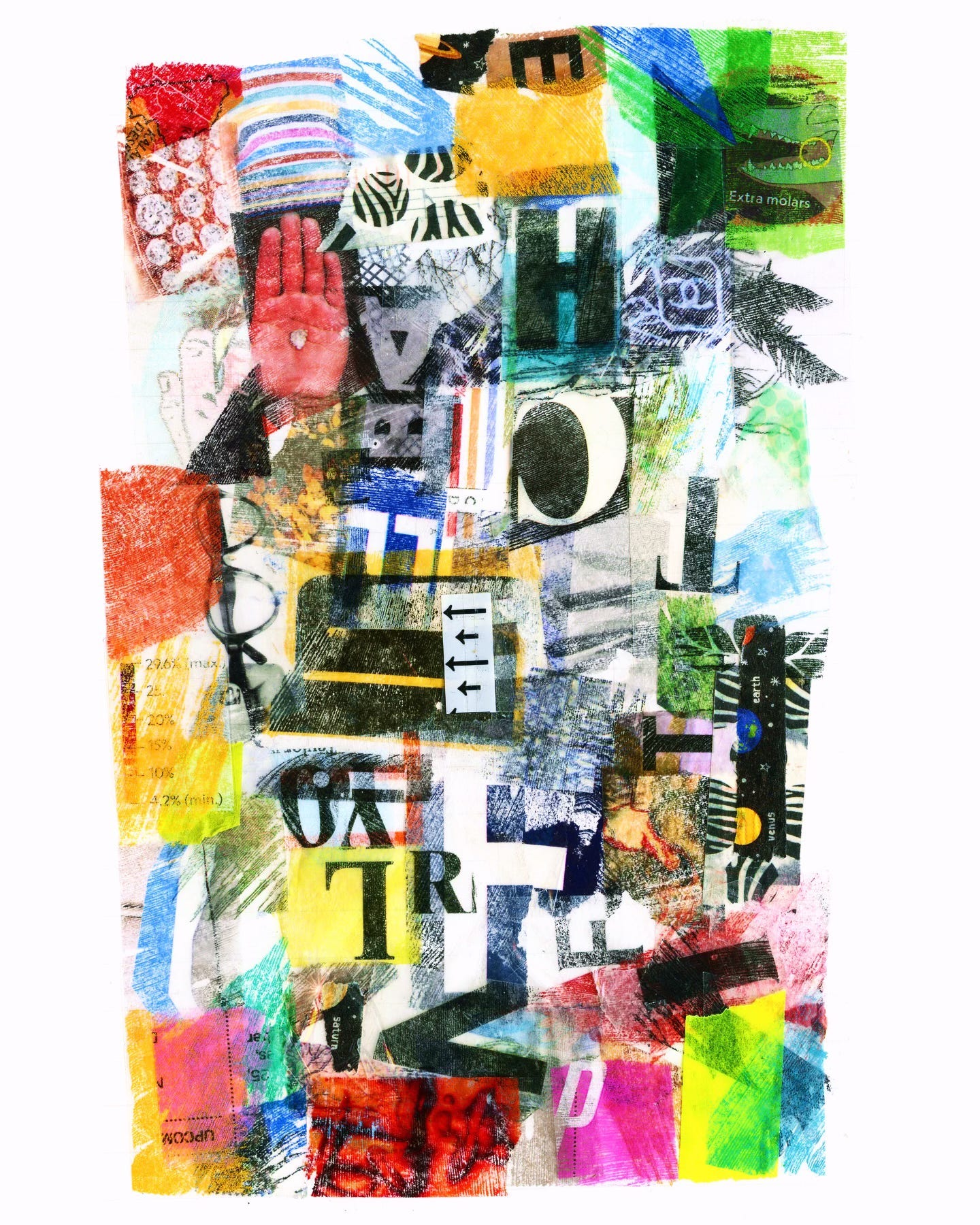The work of art
On likability, taste, editing and how something comes from nothing
Hey y’all,
I spent a good deal of time this weekend in the studio, listening to Courtney Love’s Women and making collages. Her husky voice and her outrageous attitude — her self-proclaimed “bitch capacity” — was really doing it for me. She’s got something that you just don’t get that much these days: she’s not interested in being liked.
“Being liked was never my thing,” Love says. At the same time, her ambition was enormous: She wanted to be a rock star in a big way. This capacity, this lack of desire to people please, like all energies, has enormous creative and destructive potential. (This fits in with some of the perfectionist stuff we talked about last week.) To be able to shed the desire to be liked and to be likable sets you free in your work.
It is never lost on me that the collages I fuss over are one thing, but the ones like the collage above, which are made by just sticking random tape scraps on my desk to the page, seem to have something much wilder and free in them. The more I listened to Love, the more the collages seemed to loosen up. (I have a beloved Wayne White painting in my house that says “UNFOLLOW,” but in the studio I have a tiny framed piece that says ”UNLIKE.”)

The other thing Courtney Love got me thinking about was taste. Her comments and her behavior in the past have been called “tasteless,” but she has taste. It might not be your taste, but she knows what she likes and she can articulate why. (I wonder if really knowing what you like and being able to shed your desire to be likable are somehow related?)
I took a break from collage-making to mow the lawn and listened to Ezra Klein’s terrific interview of editor Adam Moss, who has a new book out called The Work of Art: How Something Comes From Nothing. Klein’s introduction to the show is about the importance of taste in the age of the algorithm:
Knowing what you like, what you think is good, what you think is bad, what you respond to, that really matters… But after taste, there is this work of getting the thing to where you want it to be, right? If you know something is bad — you feel it’s not there yet — how do you get it to where it needs to go? The thing you are trying to do there is editing. I think we have an overly narrow description of what editing is.
We think of it as marking up the grammar of a sentence with a pen, but great editors — and I’ve worked with a lot of great editors — they’re mystics of a sort. They’re not technicians. They see something that isn’t there yet, whether of their own work or your work, and not really knowing how to get there, they help you get there. Not really knowing how to get there, they help themselves get there.
Here’s how Michael Crichton put it, as quoted by Robert Gottlieb in The Paris Review:
Keep reading with a 7-day free trial
Subscribe to Austin Kleon to keep reading this post and get 7 days of free access to the full post archives.



